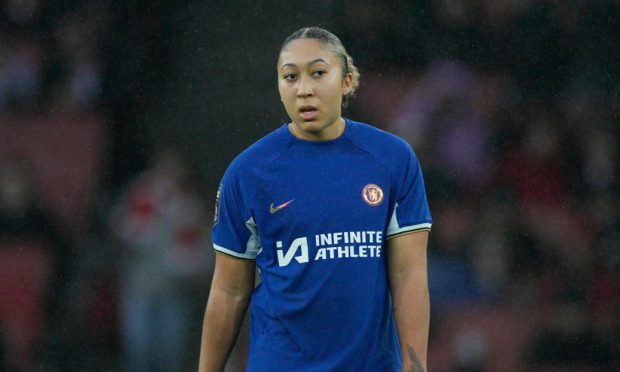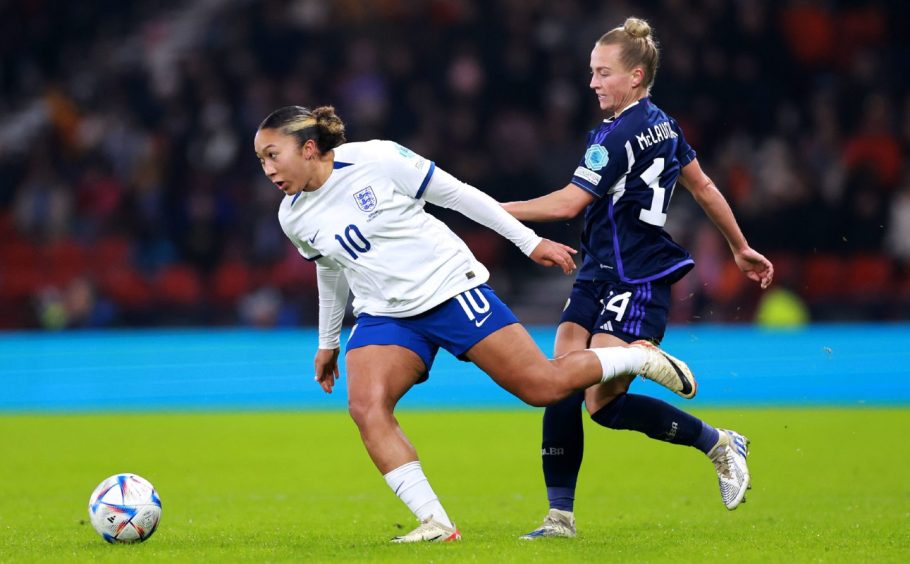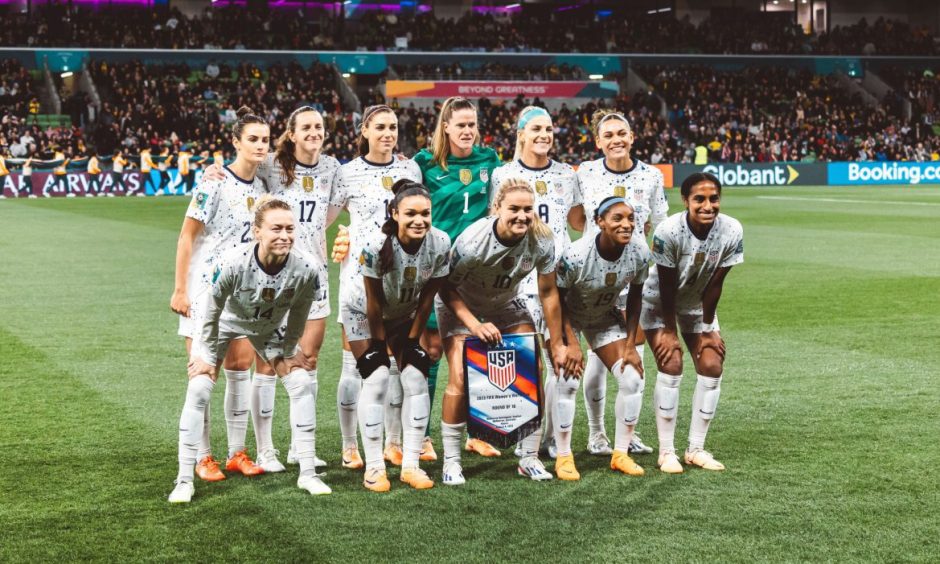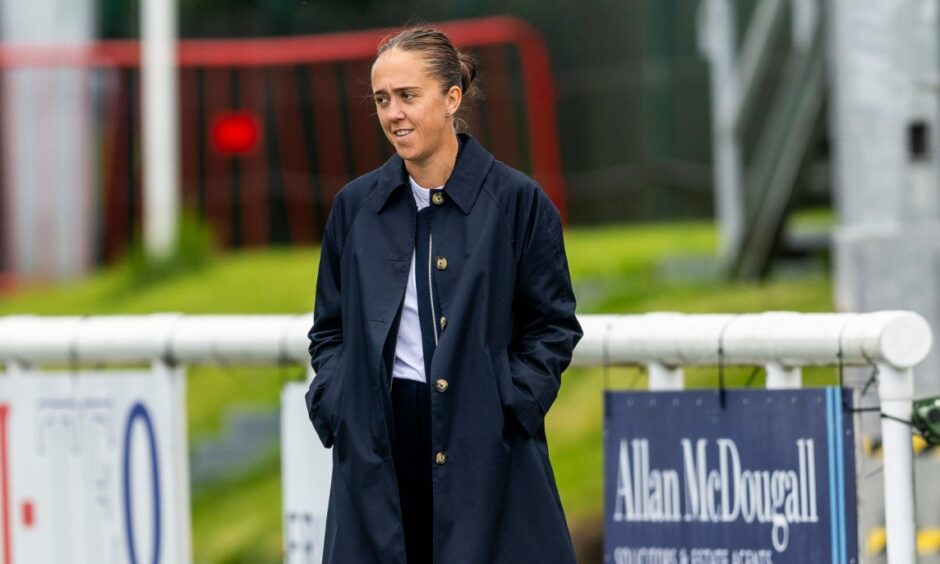No player should receive any kind of abuse at any time, never mind for just playing the game that we all love.
This week Lauren James has been the target of racist abuse after an incident in Chelsea’s defeat to Arsenal at the Emirates.
There needs to be a very serious line drawn in regards to racist abuse because it is completely out of order, but, sadly, we still miss the mark on that as it keeps on happening.
Lauren is a phenomenal player and has shown that for her club and country, but she is also young and learning.
She is going to make mistakes, such as the stamp on Arsenal’s Lia Walti, but that does not mean she deserves to feel how she currently is – with Chelsea manager Emma Hayes saying the forward is not in a good place mentally.
Unfortunately, abuse in the women’s game is widespread.
One in five players – with 697 players social media accounts monitored – were targeted online during the 2023 World Cup in Australia and New Zealand, according to data published by Fifa earlier this week.
Almost half of the abusive posts concerned homophobic, sexist or sexualised messages.
Fifa’s report found that female players were 29% more likely to be targeted online than male players who featured at the Qatar World Cup.
It is a really sad and frustrating finding. It shows that although we have made a lot of progress in the women’s game, there is a long way to go.
During my career, I have received abuse, but I know it has not been an overwhelming amount compared to some other players.
It can be extremely dangerous and damaging. Those messages can really impact the lives of players – and it impacts the lives of those posting the abuse.
If messages are homophobic or sexist that is discrimination and there can be real-life consequences if the perpetrators are caught and punished – which they can be, even those behind unnamed accounts.
As I have got older I have found more effective ways to deal with the abuse directed at me. That involves trying to avoid social media at times when I might be more susceptible to it.
But it can be hard to predict and sometimes there is no pattern to it which makes it difficult, so, I also try and limit the amount of time I spend on social media overall.
What I do might not work for others because we all deal with things differently.
As captain for my club and country, I try and help my team-mates as much as I can.
My advice to them is to surround themselves with the people whose opinions they can trust.
It is important to have a network of people around you who are providing feedback and constructive criticism because they are invested in you and genuinely want you to improve.
From there you can build a system for yourself where you are being held accountable for your performances, but you are doing it in a safe way because those people have your best interests at heart.
I think that is often harder for young players. They have grown up with social media and it is difficult to detach from that if it has always been part of your routine.
When things are going well players value those social media messages, so, when things aren’t so great, and those messages become nasty, it is then hard for people to discount them.
Clubs are doing more and more now to help their players which is incredibly important.
They have to be proactive to safeguard players and also provide a safe space for them to discuss the challenges they might be facing.
It can often be a very personal issue and some players might not feel comfortable chatting about it to their team-mates and would rather share their experience with someone more qualified in dealing with such matters.
As the women’s game grows and as social media continues to evolve, it is going to throw up new challenges, but that does not mean players should have to put up with abuse.
WSL the most competitive season yet, while Rangers impress in SWPL
This weekend will see the final domestic matches of the calendar year take place north and south of the border as the FA WSL and SWPL pause over the festive break.
The first half of the WSL has shown how competitive the league is this season. The margins are getting closer and closer year upon year and you can see that in the results so far.
It has been difficult to predict results and every week there seems to be at least one where you could have not called it going that way.
There have also been some Scottish players moving to different clubs and some have come into the league for the first time, and they are making an impact which has been really good to see.
Our league season started later this year due to the World Cup, so it has been a busy few months.
It will be good to have a bit of a break for some downtime and then come back feeling sharp and fresh in the New Year.
In the SWPL, I have been impressed with how Rangers have performed under their new manager Jo Potter.
They are the only team in the Scottish top-flight to still be unbeaten at this point in the season.
It was a big decision for the club to bring in a new management team after the success that Malky Thomson had, but it looks to have been a successful change as I feel Rangers have made a real step forward under Jo.
Her commitment and attention to detail is clear in the way Rangers play. We’re seeing the best of them.
My former club Glasgow City have a bit to do as they currently sit third, but I don’t think they are out of the title-race.
Last season, they almost blew a considerable points advantage in pursuit of the title, so will be aiming to do the opposite this time and make one up – but, that will be a really tough ask.
The league is becoming more competitive and there looks to be a good fight for a place in the top six ahead of the split.
It is important that clubs have something to play for and games are of a competitive standard and the SWPL has improved in that regard over the last couple of seasons.
Although there is a gulf in resources and infrastructure within the teams in the league, it is important they all continue to build sustainably – which provides a better platform to achieve their respective goals in the SWPL.




Conversation